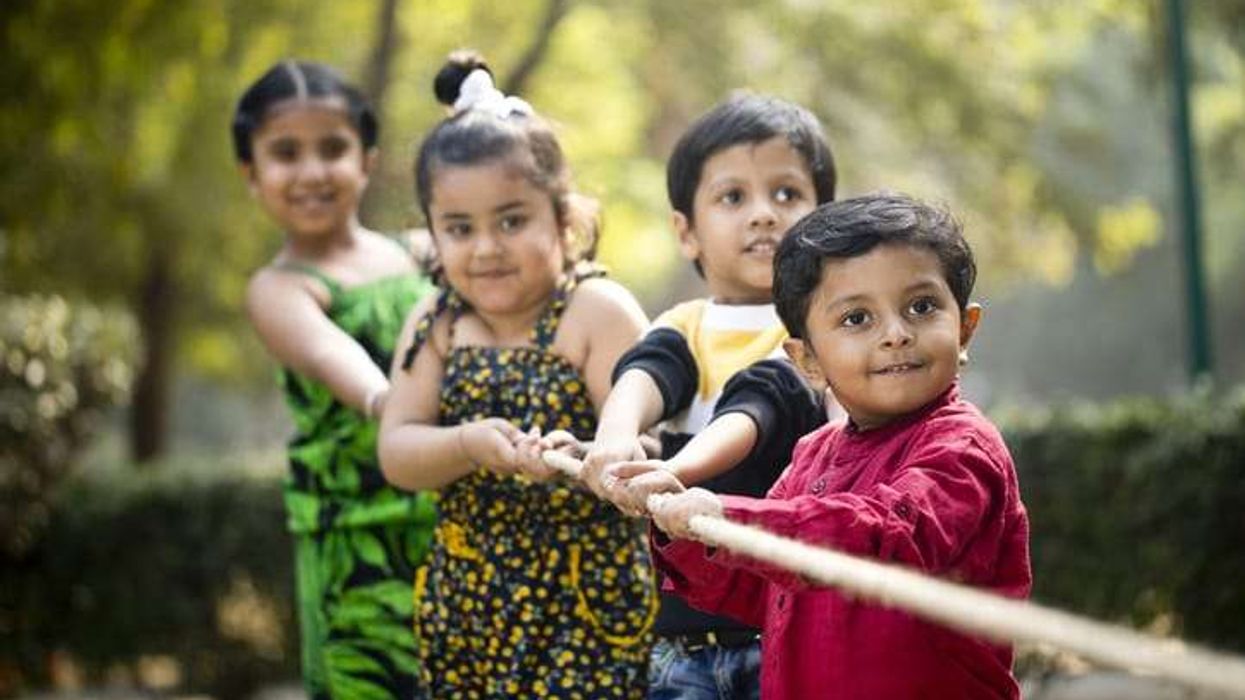AWARD-WINNING CHEF SARAH ALI CHOUDHURY’S
GUIDE TO HEALTHY EATING DURING THE HOLY MONTH
by ASJAD NAZIR
A KEY aspect of Ramadan is preparing food before and after the daily fast. With a coronavirus lockdown in place, it is even more essential to get this aspect of the holy month correct, but some simple food and cooking tips can not only reduce stress, but also improve health and wellbeing.
Award-winning British chef, food entrepreneur and cookery expert Sarah Ali Choudhury has been sharing her immense culinary skills from a young age and gave Eastern Eye 12 helpful Ramadan food/cooking tips. She said: “What we eat and how we prepare food is essential to healthy living, and even more so during Ramadan. Here are my food/cooking tips to ensure you are healthy and happy during the blessed month.”
Get fresh: Getting ingredients out of the freezer might be an easy option, but it’s not the most effective method. Cooking with fresh products like garlic, ginger and onion will immensely increase the flavour of the food, while adding more nutrients and giving more health benefits.
Plan: A little planning goes a long way. Creating a weekly menu saves time, but also ensures all the shopping gets used up and there is less food wastage. That will subsequently mean less trips to the supermarket, saving money and more time with loved ones, and for prayers.
Time-manage: Being on lockdown has made us all slow down in some way and that is a perfect opportunity to use time more effectively. Taking your time when cooking allows food to develop the flavours of all the ingredients and gets the best end results. A perfect example is taking time to properly chop and cook onions, which are so critical in South Asian dishes. Patience will make a huge difference, including increasing the flavour and intensity of a dish.
Store smartly: Even though big supermarkets keep most things refrigerated, some vegetables are best kept at room temperature and not in the fridge. Storage can greatly affect the texture of the ingredient. I find aubergines, okra and any type of squash like butternut, dhudi, zucchini, are best kept in an airy space to breathe and last much longer. I find they don’t cook as effectively when stored in the fridge. So learn about how each food is best stored.
Experiment: The extra time afforded by lockdown is a perfect opportunity to learn new dishes and techniques. You are never too experienced to learn something new. I’ve been cooking, practising, researching and developing my recipes during the lockdown period.
Inspiration: There are plenty of social media users giving food and cooking tips, but why don’t you become one? If you have cooked something really well, show it off on social media and share your knowledge. This will not only help others during the holy month, but will also inspire you to create more on the cooking journey. When lockdown is over you can look back on your culinary journey with pride.
Togetherness: If you are in isolation with family, go beyond just eating together and get them involved with cooking this Ramadan. This is especially great for those with young kids. I have been conducting online cooking classes with my children involved and find it’s a great way to teach them about good eating habits, hygiene and health. You can also use video messaging apps to share recipes with one another and can even do virtual iftars. Continue that spirit of togetherness and find out if others are in need, including elderly who can’t go food shopping during the lockdown.
Quality: The cost of food going up during the lockdown shouldn’t stop you from concentrating on quality over quantity. If you can, don’t skimp on the quality and get fresh food when it comes to things like eggs, fruit and vegetables. Remember that food and drink are the most important things we require and even more so after hours of fasting. You can also grow your own, which is easier than you might think.
Clean: I believe we create the tastiest food when we can move and access everything freely. That is why tidying as you go along will make you a lot more productive when preparing meals and lower stress levels, which can increase during long hours of fasting. When the space is clean, you become more efficient and can spend more time creating dishes.
Hydrate: It is really important to keep hydrated, so drink plenty of water before and after the fast. This has multiple health benefits and will prevent you from overeating. If you don’t like drinking lots of water, eat fresh fruit and make fresh smoothies. A good added tip to reduce dehydration during Ramadan is to have less salt in your meals.
Don’t skip suhur: You may find it difficult to get up early, but don’t skip the suhur meal as it will set you up for the day. There are a lot of suhur super foods that will help during the day by releasing energy like fruits, yoghurt, oats, nuts, chia seeds, quinoa, eggs and smoothies.
Self-care: Last but not least, cooking is not just about what you do in a kitchen or grocery store. It is important to look after yourself while fasting during a global pandemic. Get good sleep, do mindfulness exercises, remain active where possible, read, relax, follow social distancing guidelines and remain positive. This will keep the mind active, energised, happy and ready to take on any challenges. Feeling healthy while fasting and praying will be like a breath of fresh air for Ramadan.
www.sarahalichoudhury.com











